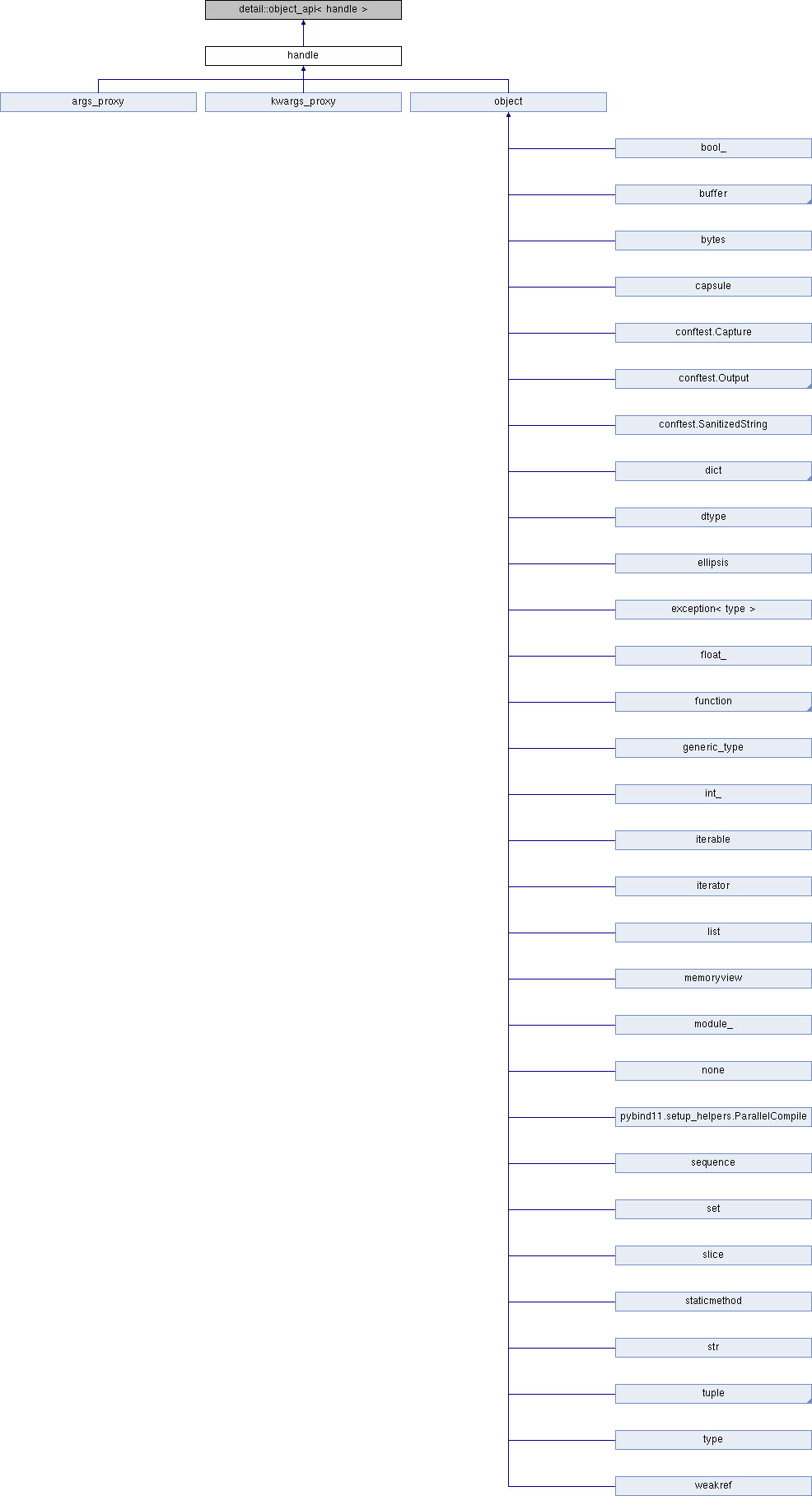#include <pytypes.h>

Public Member Functions | |
| handle ()=default | |
The default constructor creates a handle with a nullptr-valued pointer. More... | |
| handle (PyObject *ptr) | |
Creates a handle from the given raw Python object pointer. More... | |
| PyObject * | ptr () const |
Return the underlying PyObject * pointer. More... | |
| PyObject *& | ptr () |
| const handle & | inc_ref () const & |
| const handle & | dec_ref () const & |
| template<typename T > | |
| T | cast () const |
| operator bool () const | |
Return true when the handle wraps a valid Python object. More... | |
| bool | operator== (const handle &h) const |
| bool | operator!= (const handle &h) const |
| bool | check () const |
| template<> | |
| void | cast () const |
Protected Attributes | |
| PyObject * | m_ptr = nullptr |
\rst Holds a reference to a Python object (no reference counting)
The handle class is a thin wrapper around an arbitrary Python object (i.e. a PyObject * in Python's C API). It does not perform any automatic reference counting and merely provides a basic C++ interface to various Python API functions.
.. seealso:: The object class inherits from handle and adds automatic reference counting features. \endrst
|
default |
The default constructor creates a handle with a nullptr-valued pointer.
|
inline |
| T handle::cast |
|
inline |
|
inline |
|
inlineexplicit |
|
inline |
|
inline |
 1.8.19
1.8.19